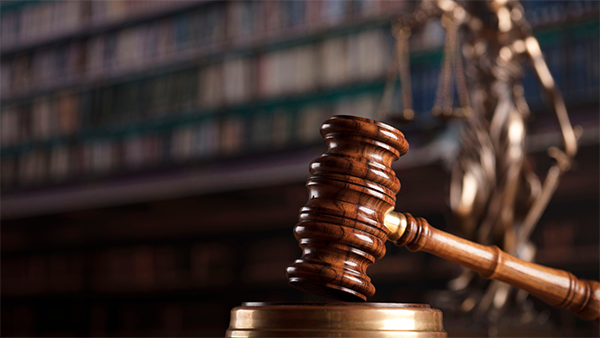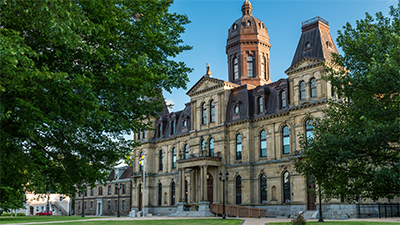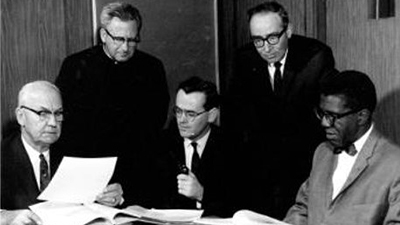
Government of New Brunswick
The New Brunswick Human Rights Act explained

The New Brunswick Human Rights Act (Act) is the provincial law that prohibits discrimination and harassment based on 16 protected grounds of discrimination.
The 16 protected grounds include:
1. Race
2. Colour
3. National Origin
4. Ancestry
5. Place of Origin
6. Creed or religion
7. Age
8. Physical disability
9. Mental disability
10. Marital status
11. Family status
12. Sex (includes pregnancy)
13. Sexual orientation
14. Gender identity or expression
15. Social condition (includes a person’s
source of income, level of education, and
type of occupation)
16. Political belief or activity
The Act also protects against sexual harassment and reprisal.
The Act prohibits discrimination in the following five areas under the provincial jurisdiction:
- Employment (includes job ads and interviews, working conditions, and dismissals);
- Housing (e.g. rent and sale of property);
- Accommodations, services, and facilities (e.g. hotels, schools, restaurants, government services, libraries, stores, etc.);
- Publicity; and,
- Professional, business or trade associations (e.g. Nurses Association of New Brunswick, New Brunswick Teachers' Association, New Brunswick College of Physicians, etc.).
For more information on the grounds and areas of discrimination, consult Introduction to the Grounds of Discrimination and Introduction to the Areas of Discrimination.
The Act’s Jurisdiction
The Act’s human rights protections cover private sector businesses, provincial organizations, the provincial government, and New Brunswick municipalities.
Federally regulated activities fall outside the scope of the Act. These activities fall under the Canadian Human Rights Act and are enforced by the Canadian Human Rights Commission.
Examples of federally regulated activities include broadcasting, telecommunications, banking, railways, shipping, extra-provincial transportation, First Nations governments, and federal government operations. If you are unsure about the jurisdiction of your complaint, you can contact the New Brunswick Human Rights Commission at (506) 453-2233 or [email protected].
Like all Canadian laws, the Act conforms to the Canadian Charter of Rights and Freedoms, a fundamental part of Canada's 1982 Constitution. While both the Act and the Charter safeguard equality rights, the Charter also guarantees various other rights and freedoms, such as democratic, mobility, legal, Indigenous, and linguistic rights. However, unlike the Act, the Charter applies only to federal, provincial, and territorial governments and their decisions, policies, laws, and agents.
Charter rights are enforced through the court system. The New Brunswick Human Rights Commission does not have jurisdiction to accept complaints related to Charter rights.
If you believe that you have experienced discrimination in New Brunswick based on one or more of the protected grounds (ex: sexual orientation) in one or more of the protected areas (ex: employment), you can file a complaint with the New Brunswick Human Rights Commission.

Not all forms of discrimination and harassment are illegal in New Brunswick. The Act protects New Brunswickers against discrimination based on 16 protected grounds, with additional protections for sexual harassment and reprisal. Further, these protections are available in five areas or activities. For a situation to be considered discrimination under the Act, it must be related to one or more of the protected grounds of discrimination, and it must fall under one of the five areas.
What is discrimination?
Discrimination occurs when individuals are treated unfairly or differently because of protected characteristics like a disability, ancestry, sexual orientation, religion, or family status. This unfair treatment can be intentional, based on prejudice or stereotypes, or it can be unintentional, resulting from systemic practices that disproportionately harm disadvantaged groups. Under the Act, individuals have a right to equal access to opportunities in employment, housing, services, and professional, business, or trade associations.
Duty to Accommodate:
As part of the protections provided by the Act, individuals also have the right to be accommodated in the workplace, at school, in housing, and in the other areas covered by the Act. This means that employers, service providers, housing providers and others have a legal duty to accommodate reasonable requests by individuals who identify with a protected characteristic. These accommodation requests may include making reasonable changes or adjustments to existing rules, policies, practices, and operations to meet the needs of protected individuals, with the aim to remove barriers and create an inclusive environment.
The duty to accommodate ends at the point of undue hardship, i.e. when accommodating the request would be too costly, create health or safety risks, or unduly disrupt operations, etc.
Some examples of accommodations include:
- Allowing flexible work hours for an employee with childcare responsibilities.
- Establishing gender-neutral restrooms and facilities to accommodate gender diverse employees.
- Offering extra time or a quiet environment during exams for students with ADHD.
- Modifying job duties of an employee with severe anxiety.
- Allowing tenants with service animals to rent in a building with a “no-pets” policy.
- Providing a space for prayers in the workplace to accommodate an employee’s religious beliefs.
For more information on accommodating different protected groups, consult the Commission’s Guidelines on human rights topics and the accompanying plain language versions.

The Act has several exceptions and limits. For example, section 6(3) of the Act states that a business may deny service to a minor if the denial aligns with the legal age limit. For example, if a bar refuses to sell alcohol to a minor, it would not be liable for discrimination.
Additionally, section 14 of the Act permits employers, housing, or service providers to give preferences to certain groups who have faced historical disadvantage by creating special programs aimed at addressing these disadvantages.
Further, section 2.2 of the Act outlines exceptions related to a “bona fide requirement or qualification”. Under this exception, employers, for example, can deny an accommodation to a protected person based on a bona fide (in good faith) workplace rule, such as a transit service mandating that its bus drivers hold either a Class 2 or Class 4 driving license or swimming facility requiring all lifeguards to pass a swimming proficiency test.
Whether such a rule is bona fide is determined by using a three-part test established by the Supreme Court of Canada:
- The rule must serve a rational purpose or goal related to the job or service being performed.
- The rule must be made in good faith (i.e. with good intentions), believing it’s necessary to achieve the said purpose or goal.
- The rule must be reasonably necessary to accomplish the purpose or goal and accommodating the affected individual would result in undue hardship.

Signatories of the New Brunswick Human Rights Act in 1967
From left to right: Hon. K.J. Webber (Minister of Labour); Rev. Clément Cormier;
Dr. Noël Kinsella; Dr. J. Lionel Guravich; Mr. Joseph Drummond.
The New Brunswick Human Rights Commission (Commission) is the provincial government agency that ensures the human rights of all New Brunswickers are protected under the Act. As an arms-length government agency, the Commission administers the Act, investigating and mediating formal complaints of discrimination. If investigation of a complaint establishes an arguable case of discrimination and mediation efforts prove unsuccessful, the Commission may refer the complaint to a Labour and Employment Board for a formal hearing.
During the compliance process, the Commission remains neutral. This means that the Commission doesn't take sides or favor either the complainant (the person making the complaint) or the respondent (the person or organization accused of discrimination). By remaining neutral and impartial, the Commission ensures that the process is fair, unbiased, and objective. This allows the Commission to examine all the available information carefully and find a fair and unbiased resolution to a complaint, within the frameworks of the Act.
Complaints must be filed using the forms approved by the Commission. The complaint process is free of charge, and a complainant does not need a lawyer to file the complaint or participate in the process.
A human rights complaint must be filed within 12 months (i.e. one year) of the alleged violation of the Act. In cases where a continuing violation is alleged, the complaint should be filed within one year of the last alleged incident of the violation. If your complaint or part of your complaint is not filed within the one-year time limit, you will need to file a Time Limit Extension Request Form along with your Complaint Form.
Once you file a complaint with the Commission, you will participate in the compliance process. The compliance process has several stages and can lead to different outcomes depending on the specific details of each complaint.
Some complaints might be resolved through mediation or go to the Labour and Employment Board for a formal hearing. Other complaints might be dismissed by the Commission’s Director because they lack evidence to support a prima facie (on the face of things) case of discrimination.
As a result, please note that your complaint may not go through every stage of the process shown below.
Intake Officer responds to inquiries (phone, email, etc.) and screens new inquiries, assesses jurisdiction, sends out complaint kits or refers calls to an officer, identifies intakes that may be suitable for pre-complaint intervention.
Complaint is created in the Commission’s tracking system (HRCTS) and assigned to an Officer who reviews the new complaint form. If revisions are needed, the Officer will contact the Complainant to go over the required changes via phone or in person.
Once a complaint form is reviewed and/or revised, it may be dismissed at the Director’s level or moved to Complaint Notification.
Officer calls the Complainant and Respondent (person who the complaint is filed against) to explain the process and offer mediation. If mediation is not accepted or is unsuccessful, the officer collects Respondent Responses to the complaint and Complainant Rebuttals (the Complainant’s counterargument to the response).
If the parties agree to mediate, Mediators are assigned the file for early mediation. Mediators assist the parties in reaching a mutual solution to the matter. Mediation can happen at any time during the process.
Legal Team analyzes the file at this point to assess next steps taken with the file. Options: Director dismissal, mid stage mediation or investigation.
Based on the next steps analysis, the file is assigned to either mediation or investigation.
File assigned to an Investigator for investigation (conduct interviews, gather documents, etc.). Investigator writes a report with their findings and recommendations to either dismiss a complaint or refer it to the Labour and Employment Board.
File assigned to a Mediator (attempts to assist the parties in reaching a resolution).
Commission Members are representatives of the public that review Officer’s reports to decide if a complaint should be dismissed or sent to the Labour and Employment Board for a formal hearing. Members also make decisions on Time Limit extension Requests and Appeals of Director Decisions.
Members can refer the matter to mediation before it is sent to the Labour and Employment Board. Mediation team takes on these files.
After an investigation, the Commission may refer complaints to the Labour and Employment Board for a formal hearing. The Board is the entity that has the power to make a final decision on a human rights complaint. It can make a legally binding decision on whether discrimination occurred and what remedies should be awarded to address the situation.

Under the Act, in addition to its compliance role, the Commission also has the mandate to educate the public about their human rights and responsibilities. The Commission fulfills its education mandate by creating public educational programs and engaging with community partners and organizations to raise public awareness about human rights and develop educational initiatives.
The Commission’s educational initiatives encompass a wide range of activities, including social media awareness campaigns, public events such as the New Brunswick Human Rights Awards, public education sessions and webinars, and research and educational publications like the Guidelines on human rights issues and Resources for teaching human rights, etc.
The Commission also collaborates with various community groups and stakeholders to develop initiatives, engagements, and projects to promote a culture of equality, inclusion, respect, and dignity in the province.
Through these multifaceted endeavors, the Commission aims to raise awareness, foster dialogue, and drive positive societal change toward a more equitable and just society for all New Brunswickers.
If you think you have experienced discrimination in New Brunswick, you can contact the Commission at:
Email: [email protected]
Phone: 1-888-471-2233 (toll-free) or (506) 453-2301
Please note that individuals must use one of the official languages, English or French, when contacting the Commission and when filling a complaint of discrimination.








